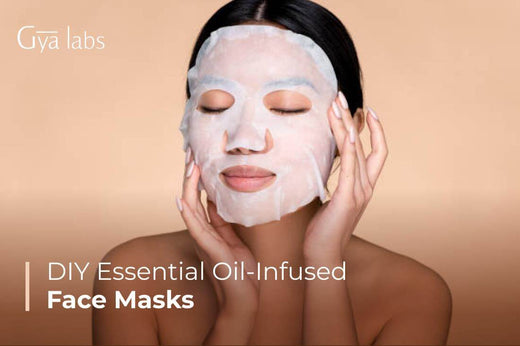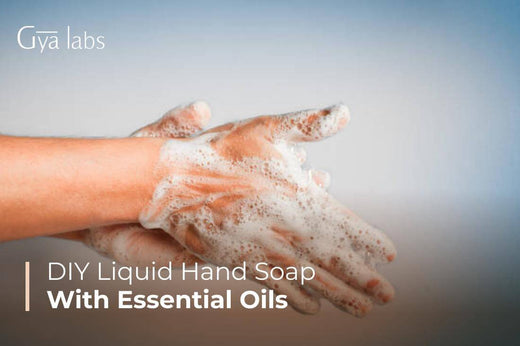In a world where sustainability and wellness are top priorities, eco-friendly cleaning has become more than just a trend, it’s a lifestyle. Many people are shifting from harsh chemicals to natural alternatives, and essential oils are at the forefront of this movement. These powerful plant extracts not only leave your home smelling fresh but also provide effective cleaning benefits.
This blog explores how you can incorporate essential oils into your cleaning routine to create an eco-friendly, toxin-free home.
The Benefits of Natural Cleaning with Essential Oils
Before diving into recipes and methods, it’s essential to understand the numerous benefits of using essential oils for cleaning:
Non-toxic Cleaning
Essential oils are free of harmful chemicals, making them safer for both the environment and your health.
Antibacterial and Antimicrobial Properties
Many essential oils, like tea tree, lemon, and peppermint, contain natural antimicrobial properties that can effectively kill bacteria and viruses.
Refreshing Aromas
Essential oils offer natural, pleasing scents that don’t contain synthetic fragrances, leaving your home smelling fresh without harmful chemicals.
Cost-effective
When compared to conventional cleaning products, cleaning with essential oils can save money since a few drops of oil go a long way.
Best Essential Oils for Cleaning
Different essential oils offer various benefits when it comes to cleaning. Below are some of the best oils to use in your eco-friendly cleaning routine:
Tea Tree Essential Oil
Tea tree oil is a natural disinfectant with strong antifungal, antiviral, and antibacterial properties, making it perfect for all-purpose cleaning.
- Best use: As a disinfectant for surfaces, bathrooms, and kitchen areas.
- Cleaning tip: Add 10 drops of tea tree oil to your cleaning solution to help disinfect and purify your home.
Lemon Essential Oil
Known for its bright, refreshing aroma, lemon essential oil also has excellent degreasing properties.
- Best use: Perfect for kitchen cleaning, especially greasy surfaces and countertops.
- Cleaning tip: Mix 10-15 drops of lemon essential oil with water and white vinegar for a powerful, eco-friendly cleaner.
Lavender Essential Oil
Lavender is not only calming but also has antibacterial properties, making it a great option for cleaning bedrooms and nurseries.
- Best use: Freshening up fabric surfaces and disinfecting commonly touched areas.
- Cleaning tip: Add 10 drops of lavender oil to your laundry detergent for fresh-smelling, disinfected clothes.
Peppermint Essential Oil
Peppermint has a cooling, refreshing scent and is a natural insect repellant. It also works wonders as a natural disinfectant.
- Best use: Ideal for cleaning areas where insects may linger, such as entryways and window sills.
- Cleaning tip: Add 5-10 drops of peppermint essential oil to a spray bottle filled with water and vinegar to repel bugs and clean surfaces.
Eucalyptus Essential Oil
Eucalyptus oil is highly effective in disinfecting and deodorizing. It can also reduce dust mites, making it excellent for cleaning bedrooms and linens.
- Best use: Suitable for cleaning bathroom surfaces and areas prone to mold or mildew.
- Cleaning tip: Mix eucalyptus oil with baking soda and use it as a scrub for tiles and sinks.
Thyme Essential Oil
Thyme oil is a powerful disinfectant due to its strong antimicrobial and antifungal properties. It’s great for heavy-duty cleaning tasks in the kitchen and bathroom.
- Best use: Disinfecting cutting boards, bathroom surfaces, and kitchen sinks.
- Cleaning tip: Mix 10 drops of thyme essential oil with water and vinegar for an extra-strong disinfecting spray.
Orange Essential Oil
Orange essential oil has a sweet, citrus scent and natural degreasing properties, making it ideal for cleaning sticky or greasy areas.
- Best use: Degreasing stovetops, countertops, and kitchen appliances.
- Cleaning tip: Combine 10 drops of orange essential oil with water and castile soap to clean greasy surfaces.
Rosemary Essential Oil
Rosemary oil has natural antibacterial properties and a refreshing scent, which makes it perfect for cleaning floors and disinfecting surfaces.
- Best use: Cleaning hardwood floors, furniture, and countertops.
- Cleaning tip: Add a few drops of rosemary oil to your DIY floor cleaner for a fresh, herbal scent and effective cleaning.
Grapefruit Essential Oil
Grapefruit essential oil has strong antibacterial properties and a zesty, uplifting scent that can freshen up any space.
- Best use: Deodorizing rooms and cleaning kitchens and bathrooms.
- Cleaning tip: Mix grapefruit essential oil with water and vinegar in a spray bottle for an all-purpose cleaner.
Cinnamon Essential Oil
Cinnamon oil is a powerful antibacterial and antifungal agent that also adds a warm, spicy scent to your home.
- Best use: Disinfecting surfaces and preventing mold growth.
- Cleaning tip: Add 5 drops of cinnamon essential oil to a spray bottle filled with water to disinfect surfaces like door handles, light switches, and countertops.
Clove Essential Oil
Clove oil is another essential oil with strong antimicrobial properties. It’s particularly effective against mold and mildew, making it a great option for cleaning damp areas.
- Best use: Mold and mildew removal in bathrooms and kitchens.
- Cleaning tip: Mix 10 drops of clove essential oil with vinegar and water to scrub moldy areas.
Pine Essential Oil
Pine oil is well known for its refreshing, forest-like scent and its powerful antimicrobial properties. It’s great for cleaning and deodorizing wood surfaces.
- Best use: Cleaning wood floors, furniture, and bathroom surfaces.
- Cleaning tip: Add 5-10 drops of pine essential oil to your DIY wood cleaner for a natural, fresh-scented clean.
Different Ways to Use Essential Oils for Cleaning Purposes
Using essential oils for cleaning offers a variety of versatile and effective methods to maintain a clean and fresh home without relying on harsh chemicals. Here are several ways you can use essential oils for cleaning purposes:
All-Purpose Cleaning Sprays
Essential oils can be added to water and vinegar to create an all-purpose cleaning spray. This is great for cleaning countertops, bathroom surfaces, windows, and more. Tea tree, lemon, and lavender oils are commonly used for their antimicrobial properties and refreshing scents.
Air Fresheners
Essential oils are perfect for natural air fresheners. You can add a few drops of your favorite oil, such as peppermint or eucalyptus, to water in a spray bottle and mist the air to eliminate odors and freshen up the atmosphere. This is a great alternative to synthetic air fresheners, especially for those sensitive to chemicals.
Floor Cleaners
When mopping floors, a few drops of essential oils like lemon or pine can be added to the mop bucket for a fresh scent and to boost the cleaning power of your floor cleaner. This works well on tile, laminate, and even hardwood floors when combined with water or a gentle cleaning solution.
Laundry Enhancer
Adding a few drops of essential oil, like lavender or eucalyptus, to your laundry detergent or directly onto wool dryer balls can give your clothes a natural fragrance and help disinfect them. Essential oils can also reduce odors and freshen up fabrics without the use of synthetic fragrances.
Natural Deodorizers
For areas like garbage cans, shoes, and closets, essential oils can be used as natural deodorizers. By placing a few drops of essential oil on a cotton ball or cloth and leaving it in these spaces, you can keep them smelling fresh. Tea tree oil is excellent for its antifungal properties, while citrus oils can brighten up any area.
Wood Polish
Essential oils like lemon and orange can be combined with a carrier oil, such as olive oil, to create a natural wood polish. This helps to clean and shine wooden furniture and surfaces while leaving behind a pleasant scent.
Bathroom Cleaners
Essential oils can be used in scrubbing solutions for bathroom tiles, sinks, and tubs. Tea tree oil and eucalyptus are often used for their antibacterial and antifungal properties, making them perfect for mold and mildew prevention. Adding essential oils to baking soda or vinegar can create an effective scrub for stubborn stains.
Dish Soap Booster
Adding a few drops of lemon or grapefruit essential oil to your dish soap can enhance its grease-cutting power and leave your dishes smelling fresh and clean. Citrus oils are especially great for breaking down oils and residue on dishes and cookware.
Carpet Freshener
You can create a natural carpet freshener by adding a few drops of essential oil, like lavender or peppermint, to baking soda. Sprinkle the mixture on your carpets, let it sit for 10-15 minutes, then vacuum. This helps to deodorize the carpets and leaves a fresh scent behind.
For more DIY cleaning ideas using essential oils, check out this article: DIY Yoga Mat Cleaner Spray Recipes Using Essential Oils.
Disinfectant Wipes
DIY disinfectant wipes can be made by soaking reusable cloths in a mixture of water, vinegar, and a few drops of essential oils such as tea tree or lemon. These can be used to wipe down surfaces and disinfect them naturally.
Glass and Mirror Cleaner
Essential oils can be used to enhance the cleaning power of natural glass and mirror cleaners. Adding lemon or orange essential oil to a solution of vinegar and water helps create a streak-free cleaner that also leaves behind a fresh, citrus scent.
Fridge and Microwave Cleaner
Using essential oils to clean the interior of your fridge or microwave can help neutralize odors and disinfect surfaces. Lemon or grapefruit oil combined with baking soda can be used to scrub down shelves, drawers, and surfaces to remove food stains and smells.
DIY Eco-Friendly Cleaning Recipes with Essential Oils
Incorporating essential oils into your cleaning routine is easy. Here are some simple, effective, and eco-friendly cleaning recipes:
All-Purpose Cleaner
This recipe is perfect for cleaning kitchen countertops, bathroom surfaces, and even floors.
Ingredients:
- 1 cup of white vinegar
- 1 cup of water
- 15 drops of lemon essential oil
- 10 drops of tea tree oil
- A spray bottle
Instructions: Mix all ingredients in the spray bottle. Shake well before each use. Spray onto surfaces and wipe clean with a cloth.
Benefits: This cleaner cuts through grease, kills germs, and leaves surfaces smelling fresh.
Eco-Friendly Glass Cleaner
This natural cleaning recipe will leave your windows and mirrors streak-free.
Ingredients:
- 1 cup of vinegar
- 1 cup of distilled water
- 10 drops of lemon essential oil
- 10 drops of lavender essential oil
- Spray bottle
Instructions: Combine vinegar, distilled water, and oil in a spray bottle and shake well. Spray on glass and mirrors, and wipe with a microfiber cloth.
Benefits: The lemon and lavender oils leave your glass sparkling clean without the harsh chemicals found in conventional cleaners.
Natural Floor Cleaner
Perfect for mopping hardwood or tile floors, this recipe is gentle yet effective.
Ingredients:
- 1 gallon of warm water
- 1/4 cup of castile soap
- 15 drops of tea tree oil
- 10 drops of eucalyptus oil
Instructions: Mix all ingredients in a bucket. Use a mop to clean your floors, ensuring they dry quickly for a streak-free finish.
Benefits: Tea tree and eucalyptus cleans and disinfects floors while leaving a fresh, natural aroma.
Toilet Bowl Scrub
Keep your bathroom fresh and germ-free with this toilet scrub.
Ingredients:
- 1/2 cup of baking soda
- 1/4 cup of white vinegar
- 10 drops of tea tree oil
- 5 drops of peppermint oil
Instructions: Sprinkle the baking soda into the toilet bowl, followed by the vinegar and essential oils. Scrub with a toilet brush, let sit for 5 minutes, then flush.
Benefits: This scrub removes stains and deodorizes your toilet without the use of harsh chemicals.
Air Freshening Spray
This DIY air freshener keeps your home smelling fresh and clean.
Ingredients:
- 1 cup of distilled water
- 10 drops of lavender essential oil
- 10 drops of lemon essential oil
- Spray bottle
Instructions: Combine all ingredients in a spray bottle. Shake well before use, and spritz the air as needed.
Benefits: Freshens up any room with natural, calming scents.
DIY Laundry Detergent
Ingredients:
- 1 cup baking soda
- 1 cup of washing soda
- 1 cup of castile soap
- 20 drops of lemon oil
- 20 drops of lavender essential oil
Instructions: Mix all ingredients in a large container. Use 1/4 cup of the mixture for each load of laundry.
Benefits: This natural laundry detergent is tough on stains but gentle on your clothes and the environment.
These are some of the DIY recipes that you can try at your home and make your own homemade household cleaning recipes or green cleaning recipes using natural ingredients. You can also customize these blends if you want by adding a few drops of your favorite essential oils. Maintaining a clean and healthy home is not only safe for our family but it is also essential for the well-being of our planet. Cleaning with natural cleaning products is one of the way to give back to the environment by promoting eco-friendly products. Traditional cleaning products are full of toxins and harmful chemicals that are not good for the environment.
Risks and Precautions of Using Essential Oils for Cleaning Purposes
When using essential oils for cleaning, it's important to be aware of the potential risks and take the necessary precautions to ensure safe and effective use. While these oils are natural and environmentally friendly, improper use can lead to various problems. Here are the key risks and precautions to consider:
Diluting Before Use
Essential oils are highly concentrated and can cause skin irritation or damage to surfaces if not properly diluted. Always dilute essential oil with water, vinegar, or a carrier oil when making diy cleaning products. A good rule of thumb is to mix equal parts water and vinegar with a few drops of essential oil. This ensures the solution is effective without being too harsh.
Surface Damage
Certain essential oils can damage specific surfaces if not used correctly. For example, citrus oils like lemon can strip finishes off wood or corrode granite and stone countertops. Before using an essential oil in a spray or as a cleaning agent, test it on a small, inconspicuous area to avoid damage to your home.
Allergies and Sensitivities
People with allergies or sensitive skin may react to essential oils used in cleaning supplies. It's important to choose the essential oil to use carefully and be mindful of those who live in your household. If you're uncertain, opt for milder natural cleaners like lavender or tea tree oil. Always ventilate the room and wear gloves to minimize direct contact with the oils.
Proper Ventilation
When using essential oils to clean your home, especially in enclosed spaces, ensure proper ventilation. This helps to avoid overwhelming the senses and inhaling large amounts of oil vapors, which can cause headaches, dizziness, or respiratory discomfort. This is especially important when working with stronger oils like tea tree or eucalyptus.
Pets and Children
While essential oils can be effective natural cleaners, some oils may pose a risk to pets and young children. For instance, tea tree oil is toxic to pets if ingested. When cleaning in homes with pets or small children, choose essential oils that are safe for them, or keep them out of the room until the area is completely dry and aired out.
Storage and Shelf Life
Improper storage of essential oils and diy cleaning products can reduce their effectiveness or cause spoilage. Essential oils should be stored in dark, cool areas to maintain their potency. Additionally, regularly check the cleaning supplies you've made to ensure they haven’t gone rancid.
Overuse
While essential oils are powerful cleaning agents, overuse can lead to unnecessary buildup on surfaces or even damage. Incorporate essential oils into your regular cleaning routine sparingly, using the right amount for each cleaning task.
Flammability
Some essential oils, especially those with high citrus content, are flammable. When using these oils in a cleaning tool such as a mop or spray bottle, avoid using them near open flames or excessive heat.
Conclusion
Incorporating essential oils into your cleaning routine is not only an eco-friendly option but also a powerful way to clean while maintaining a fresh and healthy home environment. Essential oils offer natural antibacterial, antifungal, and deodorizing properties, making them a versatile tool for a variety of specific cleaning tasks, from kitchen countertops to bathroom surfaces. By using essential oils, you avoid the harmful chemicals found in many conventional cleaners, supporting both your well-being and the environment.
However, it’s important to follow safe cleaning practices when using essential oils. Proper dilution, surface testing, and mindful storage ensure that these potent oils can be used effectively without causing damage to surfaces or irritation to the skin. Essential oils offer a wonderful balance of effectiveness and safety, but it’s crucial to handle them with care.
Whether you’re looking to freshen the air, tackle tough grime, or sanitize surfaces, essential oils are a natural way to clean with sustainable benefits. By integrating them into your regular cleaning practices, you create a safer, non-toxic home environment that promotes health and wellness for your family while reducing your ecological footprint. Essential oils are a powerful, eco-conscious choice for specific cleaning tasks and an ideal replacement for harsh chemical cleaners.















